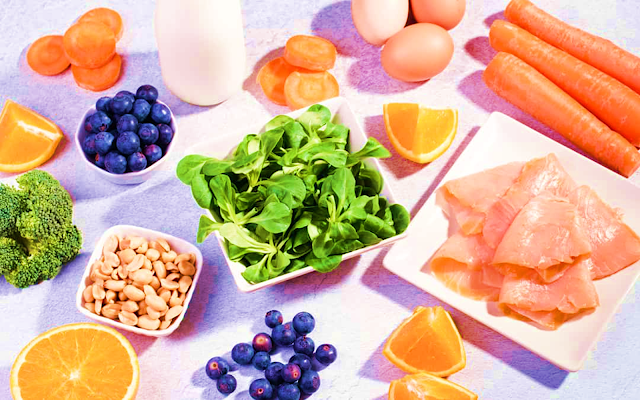HANOI – Your morning
orange, a banana at lunch, or avocado on toast could be doing more than just
satisfying hunger – they might be actively safeguarding one of your body's
hardest-working organs: the liver. Experts highlight specific fruits packed
with potent compounds that support detoxification, reduce inflammation, and
help fend off liver diseases like fatty liver, hepatitis, and even cancer.
The liver, our largest internal
organ, is a metabolic powerhouse. It filters toxins, metabolizes nutrients,
regulates energy stores, produces essential proteins, and aids digestion.
Keeping it healthy is paramount for overall well-being. According to Dr. Nguyen
Thi Phuong, a leading nutritionist at Tam Anh General Hospital in Hanoi,
incorporating certain vitamin and mineral-rich fruits into a balanced diet is a
delicious and effective strategy for liver support and disease prevention.
"Fresh fruits are nature's
pharmacy for the liver," Dr. Phuong explains. "They deliver
concentrated doses of antioxidants, anti-inflammatory agents, and fiber that
work synergistically to protect liver cells, enhance detoxification pathways,
and combat the oxidative stress that contributes to liver damage."
Here are the 8 fruits Dr. Phuong
and nutritional science identify as particularly beneficial for liver health:
Boosts detoxification: Enhances the liver's
natural toxin-processing abilities.
Repairs cells: Aids in the repair of damaged
liver cells.
Fights fat: Their soluble fiber, low calorie
count, and ability to help stabilize blood sugar can reduce the risk of fatty
liver disease. Eating citrus before meals may also curb appetite, aiding weight
management – crucial for liver health.
Immunity Shield: Significantly boosts the immune
system.
Antioxidant Powerhouse: Directly combats
oxidative stress in the liver.
Blood Sugar Manager: Its moderate glycemic index
and high fiber content help regulate blood sugar levels, a key factor in
preventing and managing fatty liver disease.
Inflammation Fighter: Reduces inflammation
linked to liver damage.
Detox Support: Potassium is essential for fluid
balance and helps the liver flush out toxins.
Digestive Aid: Fiber promotes healthy digestion
and regular bowel movements, preventing constipation – a significant concern
for liver patients, especially those with cirrhosis, as it can lead to toxin
buildup (hepatic encephalopathy). Enjoy them raw, in smoothies, or baked goods.
Constipation Prevention: Vital for cirrhosis
patients to avoid dangerous toxin accumulation.
Gut Health & Weight: One apple provides
about 20% of daily fiber needs, supporting a healthy gut microbiome and weight
management.
Heart & Sugar Benefits: Apple fiber helps
lower blood pressure and cholesterol, reducing the risk of cardiovascular
disease and diabetes – both risk factors for liver problems.
Cholesterol Control: Rich in monounsaturated
fats, they help lower harmful LDL cholesterol and raise beneficial HDL
cholesterol, improving blood and arterial health – reducing strain on the
liver.
Nutrient Density: Packed with over 20 vitamins
and minerals (especially folate, vitamins E, C, K).
Free Radical Fighters: Powerful antioxidants
neutralize damaging free radicals, reducing inflammation throughout the body,
including the liver.
Inflammation & Damage Reduction: Lycopene is
renowned for fighting inflammation and protecting liver cells from damage,
lowering risks of fatty liver, infections, and liver cancer.
Versatile Nutrient Source: Also provide vitamin
C, E, folate, phenolic compounds, and fiber. Enjoy them fresh in salads, cooked
in sauces, or as juice. (Lycopene is also found in guava, watermelon, pink
grapefruit, papaya, and red peppers).
Powerful Antioxidants: Resveratrol is a
superstar antioxidant with proven anti-inflammatory and liver-protective
properties.
Cell Protection: Helps shield liver cells from
damage and supports overall liver function. Fresh grapes are ideal, but grape
juice (unsweetened) and seed oil also offer benefits.
Bromelain Boost: Contains bromelain, a natural
digestive enzyme that significantly reduces inflammation.
Liver Function Support: Bromelain aids digestion
and reduces inflammatory burden, supporting liver health, particularly
beneficial for individuals with fatty liver, cirrhosis, or hepatitis.
Maximizing the Benefits & Important Considerations:
Dr. Phuong emphasizes crucial points for incorporating these
liver-friendly fruits effectively:
- Fresh
is Best: Opt for whole, fresh fruits over juices or heavily
processed forms. Juices remove valuable fiber and concentrate sugars.
- Sugar
Awareness: Individuals with fatty liver disease or diabetes must
be mindful of fruit sugar (fructose). While whole fruits are far better
than sugary drinks, portion control is key. Limit very high-sugar fruits
(like very ripe mangoes, figs) and definitely avoid
sugary fruit juices and canned fruits in syrup.
- Balance
is Paramount: Fruits are powerful allies, but they are part of a
holistic approach. A liver-healthy diet must also include lean proteins
(fish, poultry, legumes), abundant vegetables, whole grains, and healthy
fats. Limit processed foods, excessive saturated/trans fats, salt, and
added sugars.
- Medical
Guidance Essential: For those diagnosed with liver disease (fatty
liver, hepatitis, cirrhosis), regular medical check-ups are
non-negotiable. Dietary needs can be specific and change with the stage of
disease. Always follow the dietary recommendations provided by your doctor
or a registered dietitian specializing in liver health. These fruits
complement, but do not replace, medical treatment.
Supporting
liver health isn't just about preventing disease; it's about optimizing the
vital functions that keep your entire body running smoothly. By consciously
including these eight fruits – citrus, dragon fruit, bananas, apples, avocados,
tomatoes, grapes, and pineapple – as part of a diverse, balanced, and
whole-food-focused diet, you provide your liver with the essential nutrients
and protective compounds it needs to perform its countless tasks effectively.
It's a delicious and natural investment in your long-term health and vitality.
Remember, consult your healthcare provider for personalized advice, especially
if managing an existing liver condition.
Disclaimer:
The health tips shared on
this blog are for informational purposes only and are not a substitute for
professional medical advice. Always consult a qualified healthcare provider
before making changes to your health routine. Content is based on publicly
available sources and edited for clarity.


















0 Comments